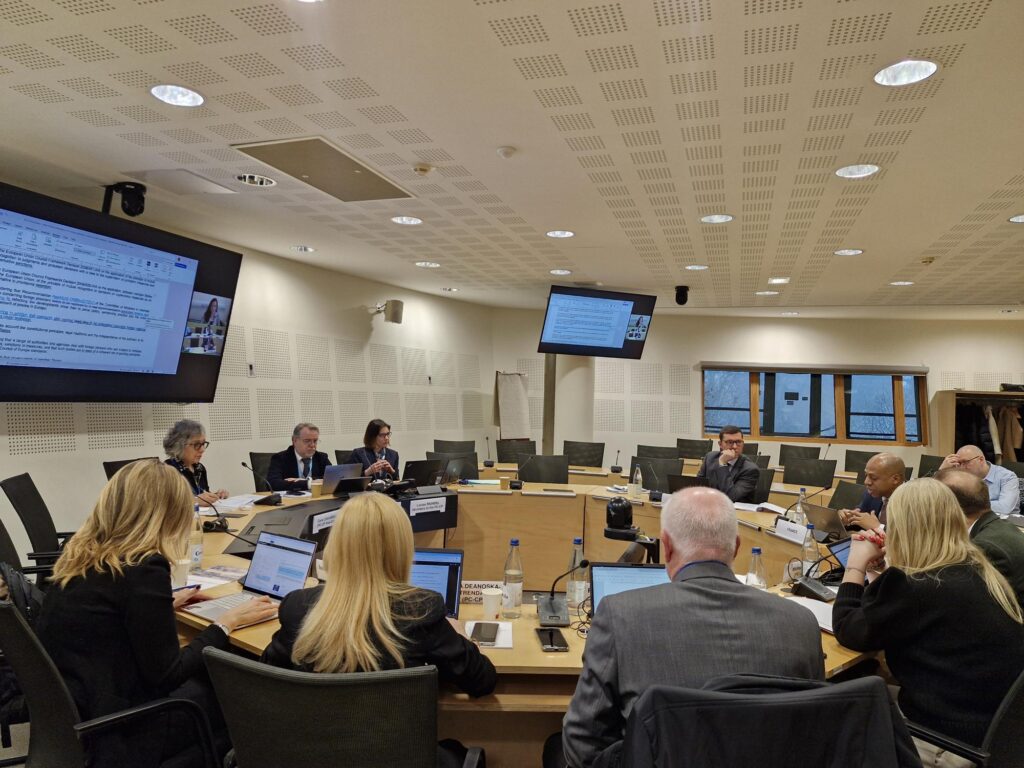Previous Article
News
11th Electronic Monitoring Conference: presentations, workshop results and more!
On the 16th of April, the 11th edition of the Electronic Monitoring Conference started. More than 230 participants from 40 countries attended the event in the wonderful city of Zagreb. The conference was jointly organised with the Probation Service in the Republic of Croatia and the theme of this year was ‘Blurring Boundaries, making and breaking connections’.
Blurring Boundaries
Electronic monitoring (EM) has matured into a commonplace penal tool used widely across Europe and beyond. Its applications appear to be limitless and its purposes diverse.
As a result, it is being viewed increasingly as a panacea for a range of societal challenges within and beyond criminal justice leading to numerous uses including in the areas of mental health, domestic violence; terrorism and immigration and diverse target groups including mental health patients, children and young people, victims of domestic violence as well as offenders.
The expansion of existing and potential target areas and groups and the goals and purposes of EM has contributed to blurring of the normative and operational boundaries within which EM is used.

Sharing and learning
During the three-day event, the participants got the chance to be updated about the newest technical developments in EM, to hear the latest experiences with EM from the different probation services and to exchange ideas on the topic. Four presentations were held and in the workshops the topics were further discussed. The conference started with the “Croatian electronic monitoring build-up session”, in which the implementation and use of electronic monitoring in Croatia was explained. This session was followed by a presentation given by Prof. Anthea Hucklesby about “Blurring boundaries with electronic monitoring; (mental) health, immigration and radicalism”. On the second day Deborah Thompson and Prof. Hannah Graham presented their work about “App technologies, probation and electronic monitoring”. After their presentations, it was time for the topic Police and electronic monitoring. Presentations were held by Jeff Hudgkinson and Prof. Anthea Hucklesby. On Wednesday the 18th of April Prof. Kristel Beyens held the final presentation of the 11th Electronic Monitoring Conference, about “Electronic monitoring and the problem of net-widening”.
Workshop results
Workshop Blurring boundaries with electronic monitoring; (mental) health, immigration and radicalism
Workshop App technologies, probation and electronic monitoring
Workshop Police and electronic monitoring
Workshop electronic monitoring and the problem of net-widening
Presentations
Presentation Croatian electronic monitoring build-up
Presentation Deborah Thompson ‘Innovation & professionals’
Presentation Hannah Graham ‘App technologies, electronic monitoring and probation’
Presentation Jeff Hudgkinson ‘Police and electronic monitoring’
Presentation Anthea Hucklesby ‘Responding to police involvement in EM’
Presentation Kristel Beyens ‘Electronic monitoring and the problem of net-widening’
Report
Report Electronic Monitoring Conference 2018
Analysis Electronic Monitoring questionnaire 2018
You can find all the pictures that are taken during the conference on our facebook page.

Related News
Keep up to date with the latest developments, stories, and updates on probation from across Europe and beyond. Find relevant news and insights shaping the field today.

CEP Board
Interview with new CEP board member Jana Bewersdorff
19/02/2026
During the General Assembly in Austria, a new CEP Board got elected for the upcoming three years. In the coming weeks we will publish interviews with all newly-elected board members where they will share information on their professional background, how they would like to contribute, what challenges lie ahead and many more.
Enjoy reading!
Recap

Research
Recap: Expert group on Research
18/02/2026
The Expert Group on Research met on 17 February at the CEP office in Utrecht, The Netherlands, for its annual face‑to‑face meeting.
New

CEP members
New CEP member: Killian Evert
17/02/2026
In recent weeks, CEP has interviewed individual members and representatives of the new member organisations that joined CEP at the beginning of 2026. In these interviews, the new member organisations or individual members will share information on why they decided to become members, how they would like to contribute to the development of CEP and many more.
Enjoy reading!
New

CEP Board
Interview with new CEP board member Line Elisabeth Wilberg
11/02/2026
During the General Assembly in Austria, a new CEP Board got elected for the upcoming three years. In the coming weeks we will publish interviews with all newly-elected board members where they will share information on their professional background, how they would like to contribute, what challenges lie ahead and many more.
Enjoy reading!
New

Probation in Europe
CEP at 40th PC-CP Working Group Meeting
09/02/2026
CEP actively participated in the meeting of the Council of Penological Co-operation (PC-CP) of the Council of Europe. Through its involvement, the organisation contributes meaningfully to the work of the PC-CP by representing the voices and professional experience of probation practitioners across member countries and jurisdictions. CEP Vice-President Ms Danijela Mrhar Prelić is a member of the PC-CP Working Group and actively participates in all meetings.
New

Probation in Europe
CEP at the EMPRO Symposium hosted by ERA
04/02/2026
CEP actively contributed to the EMPRO Knowledge Exchange Symposium hosted by the Academy of European Law (ERA) in Trier on 28–29 January, bringing together practitioners, policymakers, and researchers to reflect on the implementation of EU Framework Decisions in probation and supervision.
Subscribe to our bi-monthly email newsletter!
"*" indicates required fields
- Keep up to date with important probation developments and insights.

